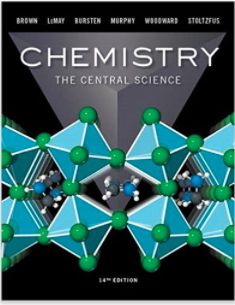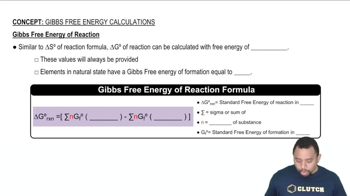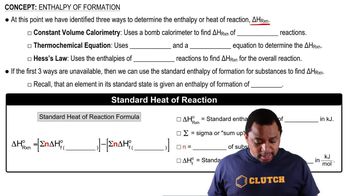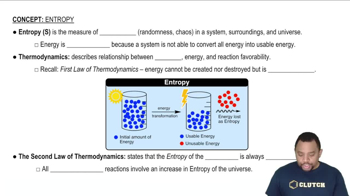Textbook Question
(b) For a certain process that occurs at constant T and P, the value of ΔG is positive. Is the process spontaneous?

 Verified step by step guidance
Verified step by step guidance



(b) For a certain process that occurs at constant T and P, the value of ΔG is positive. Is the process spontaneous?
For a certain chemical reaction, ΔH° = -35.4 kJ and ΔS° = -85.5 J/K. (b) Does the reaction lead to an increase or decrease in the randomness or disorder of the system?
Use data in Appendix C to calculate ΔH°, ΔS°, and ΔG° at 25 °C for each of the following reactions.
a. 4 Cr(s) + 3 O2(g) → 2 Cr2O3(s)
b. BaCO3(s) → BaO(s) + CO2(g)
c. 2 P(s) + 10 HF(g) → 2 PF5(g) + 5 H2(g)
d. K(s) + O2(g) → KO2(s)